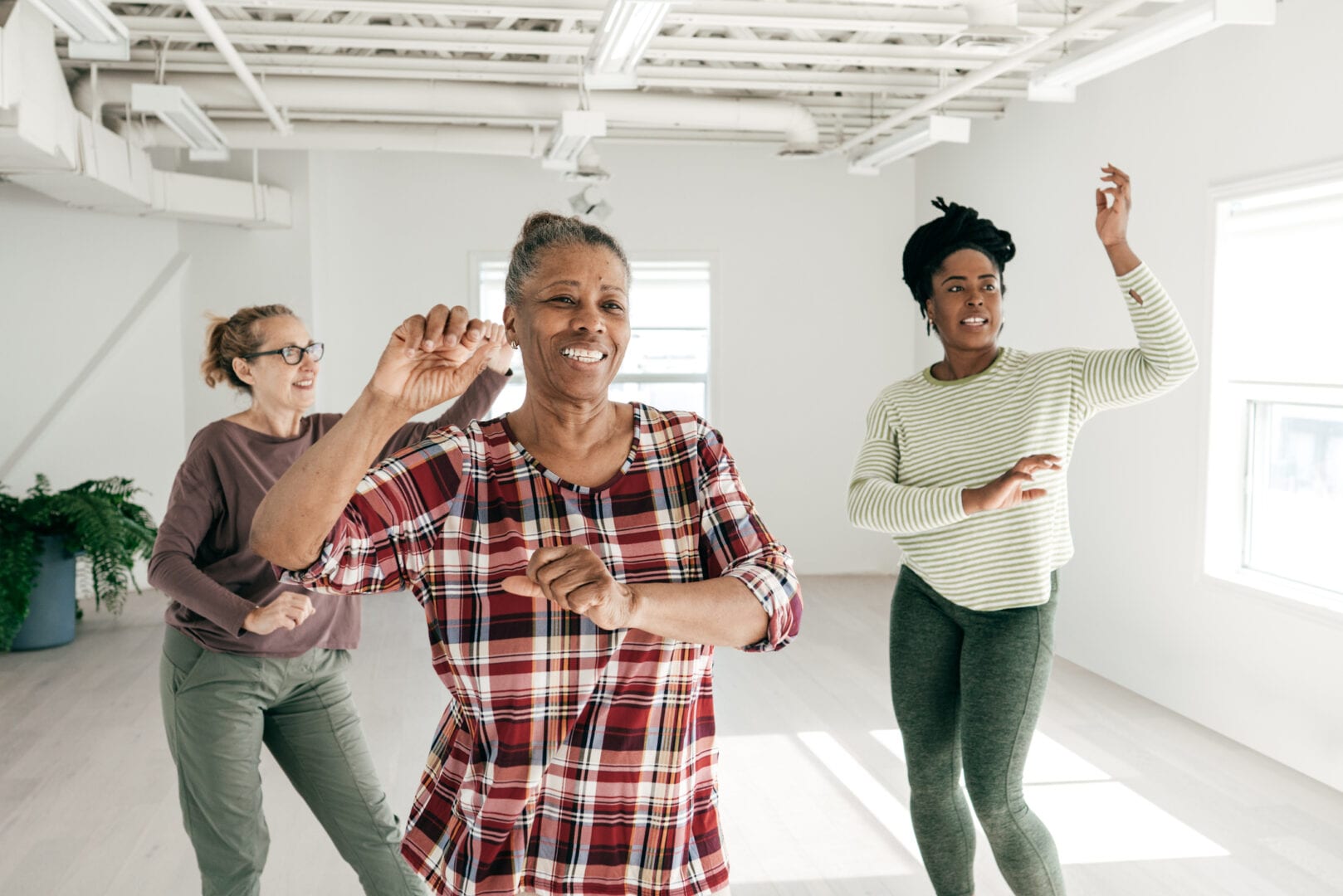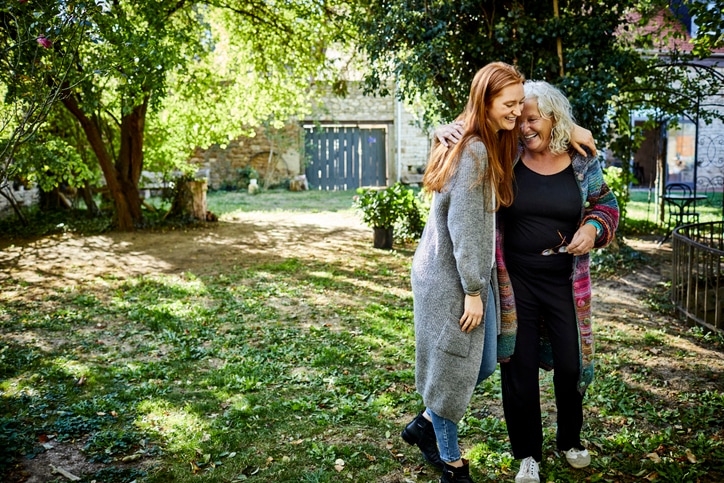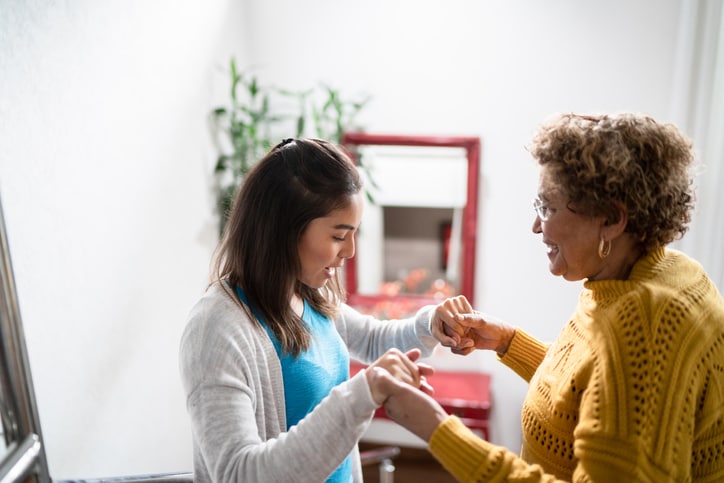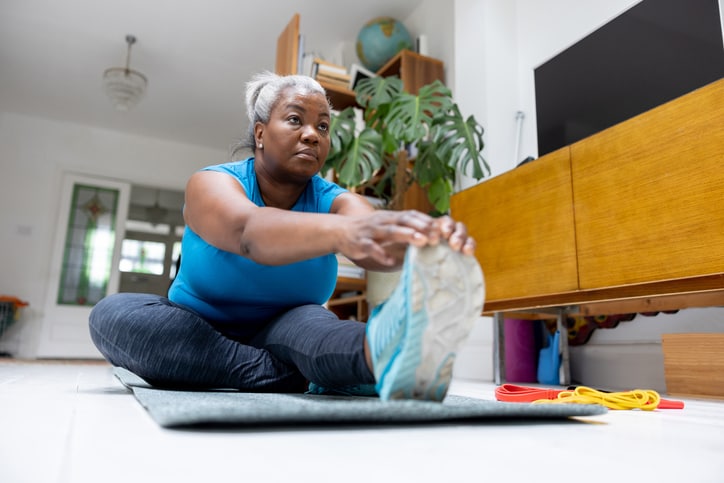Daily routines can be beneficial for people of any age, but they are especially vital to the mental and physical health of seniors. For seniors, daily routines offer a way to stay motivated, a regular schedule of activities and things to look forward to and a roadmap for accomplishing tasks that keep them feeling healthy and productive.
“Keeping a routine decreases stress and keeps seniors from becoming overwhelmed,” says Nicole Brackett, a care delivery and education manager at Homewatch CareGivers in Greenwood Village, Colorado. “Consistency with the activities of daily living can also bring a sense of calm and safety, and staying active can help ward off the effects of immobility.”
But as important as daily routines may be, sticking to them isn’t always easy for seniors. Changes in health status and other difficulties that come with aging can create physical and emotional challenges to staying active. Caregivers have a unique opportunity to work closely with seniors to establish routines that meet their unique needs and to support them in following through with those routines.
Here’s what experts say you can do to help older adults develop and maintain the right kind of daily routine for them.
What are the benefits of a daily routine for seniors?
A daily routine is the usual series of things people do to take care of themselves each day. This includes basic hygiene and self-care tasks, but it may also include daily exercise, chores, hobbies and time for socializing. Each senior’s routine will depend on their interests, lifestyle and abilities, says Gabrielle Juliano-Villani, a therapist and licensed clinical social worker who specializes in senior and disability care at Colorado In Home Counseling in Denver, but maintaining some kind of daily routine, even if it’s just a few brief tasks, is profoundly important for seniors’ mental wellness and independence.
“We know our older adults and seniors are at high risk for depression,” says Juliano-Villani. “Many of them aren’t working anymore, and some have chronic health conditions that can be exacerbated by depression and isolation. If they aren’t taking care of themselves, their mental health can decline and those health conditions can get worse.”
In addition to staving off depression and illness, Brackett says seniors who keep a daily routine and stay active also benefit from:
- Increased mobility.
- Higher energy levels.
- Improved mood.
- Reduced stress.
- Improved cognitive function.
How caregivers can support a senior’s daily routine
1. Start small
Yes, routines and activity have benefits, but it’s important to move at the senior’s pace. “There are so many different levels of ability,” Juliano-Villani says. “If someone is able to get themselves out of bed and ready for the day, they should do that. Or maybe they are bedridden, but can they make calls independently or read a book?”
“Find things that work for them and allow them to still have control over that piece of their lives.”
— gabrielle juliano-villani, therapist and licensed clinical social worker
Juliano-Villani recommends picking simple tasks together that seniors can manage, such as:
- Getting dressed and combing their hair.
- Making themselves coffee or breakfast.
- Making a weekly call to a friend or relative to check in.
- Making a grocery list and shopping.
- Doing some deep breathing, chair yoga or mindfulness exercises.
“Find things that work for them and allow them to still have control over that piece of their lives,” she adds.
2. Focus on the cans versus the can’ts
Many seniors are dealing with changes to their health and mobility, and it’s normal for them to feel overwhelmed and even frustrated by that, says Juliano-Villani. “Many times I’ll hear from patients saying, ‘I can’t drive. I can’t do this or that. Why should I even bother?’”
When this happens, there are two steps to take:
- Reframe the conversation to focus on what they can do.
- Modify the activity.
“I might reframe by saying, ‘That’s true. You can’t drive, and that’s really hard,’” Juliano-Villani says, “‘But you still walk well. You can take a walk around the block, and you have a caregiver who is there to make sure you’re safe and don’t fall. That’s really great.’”
Iris Waichler, a licensed clinical social worker, patient advocate and the author of Role Reversal: How To Take Care of Yourself And Your Aging Parents, says to modify by finding new ways for seniors to do the things they enjoy. “If they can’t dance, maybe you can play their favorite music and sing together to create new memories,” she says. “Music is a wonderful form of reminiscence therapy for people with memory issues. If they can’t walk, maybe you can sit together in a beautiful garden.”
3. Dive into their routine with them
Sometimes helping a senior stay motivated is as simple as diving into their routine along with them. “If a senior does an activity with a caregiver, then they know, like, ‘OK, Jessica gets here at this time. When Jessica gets here, we make breakfast together,’” Juliano-Villani says. “It gives them something to look forward to and a way to take ownership of that activity.”
Amy Graber, a physical therapist and the co-owner of Fit Family Physical Therapy in Phoenix, says having caregiver support is also important to keeping seniors safe and helping them feel more confident during activities. “It’s a huge determinant of participation in exercise, and it may take away some of the anxiety associated with being active,” she says.
Most importantly, Waichler adds, doing things together is an opportunity for joyful bonding with caregivers. Seniors are more willing to do things that are fun, says Waichler who adds, “And incorporating daily activities, like walking to enjoy a beautiful day or dancing, can create beautiful shared moments for all involved.”
4. Use schedules and reminders
Giving seniors tools to manage parts of their routine can help them take ownership of their daily tasks and feel more in control, says Juliano-Villani. Some tools the experts recommend to help seniors keep track of their daily activities include:
- Writing reminders on a white board where seniors can see them.
- Setting hourly timers to remind them to get up and move.
- Creating a schedule for simple household chores.
- Making to-do lists for tasks like grooming and errands.
5. Make movement a priority
“Strength and mobility loss don’t have to be commonplace for seniors,” Graber says. “While muscle loss is a natural occurrence as we age, we can do activity to combat these losses.”
To begin a movement practice with a senior, Graber says to start by:
- Checking with a medical provider about what can be done safely.
- Finding movements seniors feel comfortable doing.
- Supervising or joining in with seniors for safety.
- Remembering that even a few minutes of movement has benefits.
“Staying active, even for 20-30 min a day can lead to so many positive health changes,” Graber says. “One 30-minute brisk walk a day can ensure seniors are continuing to challenge their cardiac, respiratory, muscular and skeletal system.”
6. Find a social group
If a senior has a hobby they enjoy and they like socializing, Graber says finding a group dedicated to that activity can give them an opportunity to mingle and feel supported in doing something they love. “There are so many wonderful senior groups out there that can support an active lifestyle,” she says. “There are senior hiking groups, walking groups, fitness classes, yoga classes. Finding a social circle of like-minded, active individuals can go a long way.”
Of course, not every senior is an extrovert. If a group isn’t the right fit for seniors, Juliano-Villani says to find more personal social opportunities that feel comfortable for them, whether that’s visiting with a close friend, family member or people from their place of worship. “Just some social contact, even if it’s really small, can be beneficial,” she adds.
“Honor all the things that bring them meaning and joy, and infuse those things into the activities of daily living as much as possible.”
— NICOLE BRACKETT, A CARE DELIVERY AND EDUCATION MANAGER
7. Focus on what they love
“Staying active works best when we’re engaging in things we enjoy,” Brackett says. “Keeping a routine has its benefits, but too much structure can begin to feel sterile or institutional, and that doesn’t sound appealing to anyone.”
Rather than treating a routine like a daily checklist, Brackett says to connect with seniors, really get to know them and find ways to add personalization, fun and comfort to their daily activities. “For example, a normal bath can become more like a spa day if you add some scented bath soaps, dimmer lighting, soft music and maybe a heated robe to put on afterwards,” Brackett says. “Honor all the things that bring them meaning and joy, and infuse those things into the activities of daily living as much as possible.”
8. Don’t force it
Waichler believes it is important to acknowledge that maintaining a daily routine may be challenging for some seniors. If a senior is dealing with a medical condition or struggles with mental health, the idea of maintaining routine can cause additional stress. Rather than turning the routine into a battleground, she suggests making space for seniors’ feelings and working together to find a solution.
“Caregiving is always more successful if the dynamic is one of collaboration rather than confrontation,” Waichler says. “People tend to push back more if they are forced to do something they don’t want to do. I would use a trusted physician to recommend activities and explain why they are beneficial for health and quality of life.”
9. Honor their independence
Brackett says routines should center the senior’s needs and take their unique interests, abilities and desires into account. Some seniors may have fears about losing their independence or bodily function. Honor those fears, Brackett says, and reassure them that their independence and well-being is your priority.
“It is key to convey that we want to honor their personhood and all the things that are important to them and actually encourage independence,” says Brackett. “Doing everything for a person strips them of all they still have to contribute. The focus needs to be on how much life the person has lived and what they still have to contribute.”




